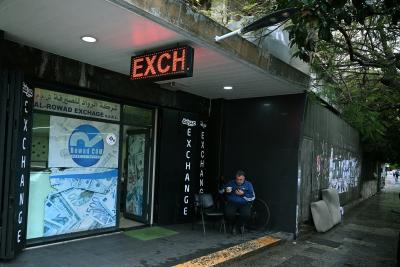"I expect the new Government not to raise the minimum wage (SMIC)," says Bernard Cohen-Hadad, President of the Étienne Marcel Think Tank.
The rise in the number of business failures, especially among small and medium enterprises (SMEs) and very small enterprises (VSEs), is becoming alarming in our country…
In the first half of 2024, the number of business failures reached 33,500, an increase of +18% compared to the first half of 2023 and 20% higher than the average business failures in 2018 and 2019, before the Covid crisis. In the second quarter, failures even jumped by +23% compared to the second quarter of 2023, rising from around 13,000 to 16,000, while the average over recent years hovered around 10,000. These increases are unprecedented, except for the financial crisis (2009) and the sovereign debt crisis (2012-2013).
I identify two types of causes for this increase in business failures: some immediate, others deeper. The immediate causes include, after a low point in 2021, the ongoing catch-up of business failures following the end of the "whatever it takes" emergency state aid implemented by the government (PGE, Solidarity Fund, furlough schemes, deferrals of Urssaf social security contributions, etc.). Businesses are suffering from a "scissor effect" as aid is gradually withdrawn, while loan repayment deadlines loom. The uncertain economic situation and stagnant growth also affect them, as they no longer generate the necessary results to repay accumulated debts. The deeper causes lie in the fragilities of the French production system. Today, failures are surpassing mere "catch-up" as immediate and deeper causes resonate together.
**Which sectors are most affected in the SME world?**
The most affected sectors are commerce, construction, services, and especially real estate activities. In construction, order books are as low as in 2015. In the first half of the year, more than 600 real estate agencies went bankrupt. The "Madame Castets at Matignon" saga froze many real estate transactions and investment projects. Although they also suffer from the downturn in the residential market, second-tier contractors and real estate developers are holding up better. Then come the sectors of transport, private security, warehousing, pharmaceuticals, financial activities, and insurance.
By size, it is the micro-enterprises in regional areas that are recording the most significant increase in failures and account for the majority of the second-quarter 2024 failures. However, SMEs with 50 to 99 employees are also increasingly affected, with 27.1% failures. Conversely, SMEs with more than 100 employees and medium-sized businesses are less severely impacted.
**Are PGE repayments and late payments still responsible for the fragility of our SMEs?**
Yes, still and always. This remains a taboo topic for banks, but the too-rapid repayments of PGEs have durably weakened businesses. Moreover, poor practices regarding payment delays are deeply entrenched. SMEs are the most penalized category of businesses by late payments, representing a gap of 16 billion euros in SME cash flow! Some businesses, overwhelmed with daily operations, send their invoices late and follow up with partners tardily. While the 30-day payment term is unrealistic, the 60-day limit for professional payments is a good legal benchmark. However, in reality, the majority of SMEs are paid after 90 days, 180 days, or even a year or more in some degraded situations. Major public or private contractors are poor payers of their suppliers. Not all sectors are treated equally: hospitality and catering are particularly penalized. Likewise, the situation is harsher for overseas SMEs far from mainland France, which suffer from local specificities.
Generations of bad payers continue the cycle. These are common practices, and in some sectors, deliberate financial strategies aimed at creating dependencies that lower the prices of services provided. Some major contractors exploit the lesser organization and enforcement capacity of VSEs and SMEs to demand additional documents and extend payment deadlines.
Given the situation, I recommend, on a case-by-case basis, rescheduling PGE repayments to make them more compatible with the uncertain economy, slowing growth, and weakened profitability of businesses. Regarding late payments, large public and private enterprises hold the key to change. It is their responsibility to shift the lines by improving their payment practices and making this a reputational issue under the CSR framework to promote economic solidarity among businesses. Improving payment behaviors will also help rebuild trust in inter-company relations, fostering greater economic dynamism, including at the local level.
**"I call for a massive SME plan," you said. What do you expect from the new government?**
First and foremost, I expect the new Government to maintain the supply-side policy pursued since 2017 and the reduction of the burdens weighing on businesses. This is the first condition for the restart of dynamic growth, supported by a foreseeable reduction in interest rates. Any contrary signal would send a message of mistrust to the entrepreneurial world.
Secondly, I expect the new Government not to raise the minimum wage (SMIC). Let's remember that wage growth is currently outpacing inflation, even as many businesses see their order books shrinking, payment delays extending, and face international competition. In these circumstances, any increase in the SMIC would exacerbate difficulties and fuel the current rise in business failures.
I also expect the new Government to resume its administrative simplification efforts as quickly as possible, notably by advancing the "SME test." Finally, I expect the new Government to introduce reform measures to resolve the housing crisis, as it is a powerful growth driver and facilitator of employment through professional mobility.
**Will SME and VSE failures have a short-term negative impact on national employment?**
Mechanically, the 64,000 anticipated failures for the year – approaching the record of 65,000 in 2014 – could ultimately affect 220,000 jobs. By the end of the year, two developments could have a more positive impact on the health of businesses and employment: the resumption of consumption with declining inflation and interest rates, as well as the long-term economic effects of the successful Olympic and Paralympic Games. These would overcome two obstacles to business investment: weak demand and the high cost of credit.
The elephant in the room remains: our country's chronic budget deficit and the abyssal public debt.
*(*1) The Étienne Marcel Think Tank is an independent association (law 1901) that works to promote responsible and civic entrepreneurship in France. This “citizen” company fully assumes its role in the life of the region by deploying a "corporate social responsibility" (CSR) approach, which voluntarily integrates sustainable development issues – the "ESG" concerns for environmental, social, and governance aspects – into its commercial activities and relations with stakeholders, to remain economically viable while having a positive impact on society and the world.*
*(*2) The minimum wage for growth (SMIC) in France is the minimum hourly wage, below which no employee over 18 can be paid. It is set at 1,398.70 euros net per month.*
Please post your comments on:
[email protected]
 Politics
Politics














